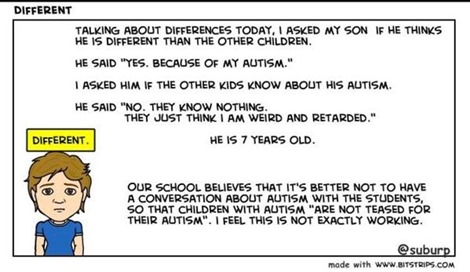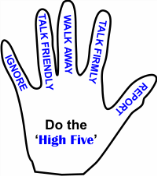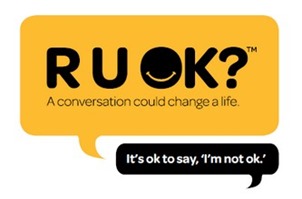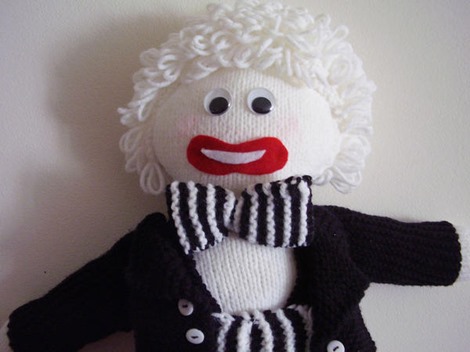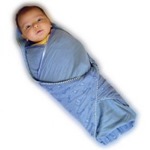Yesterday, in Australia, people who are against government scheduled immunisation programs of children woke up to some news:
The Australian government announced that it will actively penalize parents who do not vaccinate their children by cutting the Family Tax Benefits . These are usually paid – if you qualify by income threshold – to families here, instead of direct tax reductions or classes (as done in other countries). This policy announced by the Australian Labour Party – whose re-election in September is currently less than certain – sends a strong message that, I believe, is meant to make people understand that it is indeed NOT an individual decision whether or not you vaccinate your children. Also, according to the article, payment restrictions are already in place since last year, but left room for the so-called conscientious objectors. Labour plans to only allow medical and religious reasons for non-immunisation. Interesting.
Now, I have yet to blog about my personal experience with both, the Australian Vaccination Schedule (which is different of European ones and therefore registered my son in default at the age of 4) and payment cuts (of the Child Care benefit in my case) . All this indeed happened about a year before the first clear signs of autism showed in my son, after he actually ended up having one more MMR vaccination packet than your regular Australian child. And no, I was not comfortable with this. I would have had to live under a rock – or at least without internet and other media – to not have ever heard about the forever discussed, but completely disproven “link between autism and MMR vaccinations”. So yes, I read a lot about it.
And when I say a lot, I mean A LOT. I focused on reports on what scientist have found in peer reviewed tests and studies, and I tried to leave the unscientific, the alarming and the anecdotal accounts and websites out of my process of judgement. That is not easy. I am a mother first, and instinctively, I listen to what other mothers have to say. And the internet, as we all know, is full of mothers giving their opinion on just about anything child related – and beyond. (The internet is also full of mothers telling other mothers that they are fed up with their unwanted advice and thoroughly over all the so called ‘mommy wars’. I certainly am.)

Luckily, we have seen immense progress in medicine.
In the end, I have come to the conclusion to trust modern science over what we will just call ‘people on the internet’ with an obsession over governmental conspiracy, ‘Big Pharma’ and the belief that ‘all things natural’ are automatically good and wholesome for you. Now, bacteria, viruses – they are indeed natural occurrences. But even if overpopulation has become a serious problem on this planet, I have yet to see calls for the reintroduction of , say, the bubonic plague to somehow regulate the problem ‘naturally’.
I am as ‘bio’ as any odd person, I believe in healthy food and recycling, and I certainly don’t run for the medical cabinet at the least sign of a headache.
But if my son had a spiral fracture in his leg, I would not simply straighten it with a stick and hope for the best. If he had a fever or an infection, I would not set leeches on his body to pull illness out if it. I am, indeed, thankful to live in this time and in a country, where we have access to modern medicine, anaesthetics, medication and surgery. And free (!) immunisation programs.
Yes, there is an inherent risk of side-effects, allergic reactions or human failure on administration in modern medicine, but on the whole, we are SO MUCH better off than many on this planet and certainly better than our ancestors who battled with high child mortality rates and incurable illnesses throughout history.
For me, on vaccination, my personal research is long done : I have formed my opinion and will follow through (with the vaccination schedule that is).
But I still follow the discussion and events. Here is an excellent write-up on what’s going on in the US I read only this weekend.
Even if some have moved on from the ‘link to autism’ debate, there is now a whole and very vehement anti-vaccination movement, based on the rejection of ‘toxins’, a preference for immunisation through ‘natural antibodies’ and the before mentioned suspicion of ‘BigPharma’. And this movement is indeed also growing in Australia.
In this context, the planned policies deserve a bit of consideration.
I wonder is if these people will even be concerned by the cut in government funding, when – other than complacency due to ignorance on the severity of these illnesses – the most fervent immunisation rejecters are often part of the upper middle-class to wealthier parts of the population ? If you do not get or need the Family Tax Benefit in question, you will not feel any cut at all.
I have also read in the past, that the perspective of future stricter laws to protect herd immunity in Australia has lead some “anti-vaxxers “, as they are also called, to already start some sort of pseudo-religious movement to be able to put forth the required religious reasons. Homeschooling rates might increase further, but I could also imagine the set-up of ‘immunisation free’ child care centres. Members of the movement have shown to be fierce in the defence of what they consider their right to individual choice as it is, and I can already imagine how people who otherwise have had no objection to immunisation will now question the ‘real reasons’ of a government and sympathise with the movement just out of principle.
It’s a dilemma, because the immunisation rates according to the NCIRS , are still relatively high and are ensuring herd immunity in this country – on average. But there are pockets in certain areas with far lower coverage, and larger outbreaks of vaccine-preventable diseases in other parts of the western world in similar settings (in several European countries) have been registered. Sadly, for some people, the new, stricter policy (if it comes into place) will just increase their suspicions, drive them onto the internet for ‘information’ and into the arms of what I believe is fear-mongering, 1st world problem creating propaganda (anti-vaccination sites are increasingly donning a more ‘news&science’ design, in look as much as in their articles).
But other than the never-ending mommy wars about breastfeeding, working, homeschooling or disciplining your child, this is actually a VERY serious problem and it does NOT only concern your own child : One sick non-vaccinated child can easily introduce infectious diseases into any group of vaccinated children who can still carry the infection home to their family. This has the potential to kill children. Babies, who are too young to be immune yet. Children with actual medical deficiencies that cannot be vaccinated.
“Chicken pox parties” or the celebration of measles in a book ? I can’t see how any thoughtful human being would want to be part of that. Personal choices and decisions do ALWAYS end where they interfere with other peoples well-being.
And while it is true that one section of the movement has widened their argumentation beyond the false claims that vaccinations cause autism, I can’t help but feel that there is still a lot of time, energy and money spent that does nothing to help people and children with autism live better with the condition. Rather, autism is still painted as the “ultimate evil” that can come into your life if you do not distrust, delay or refuse vaccination. Now while this is not only false in regards to what scientific research says on possible causes of autism (at the risk of sounding like a broken record: NOT vaccination), it furtherly contributes to the negative attitude the public will have towards autism and other people with visible or invisible disabilities, mental illnesses and generally anyone who is different, weak or disadvantaged in any other way. I am not one of the parents that will tell you how ‘the gift of autism’ is what makes their child so unique, so beautiful or deep. But I am living with it on a daily basis and I am accepting it as part of who my child is. Yes, he is a great kid, unique and beautiful. But every unscientific blogpost, every media appearance of an anti-vaxxer merely on the basis of ‘balance’ when reporting about immunity issues, raising doubt and fears in parents, keeps feeding into the unscientific, dangerous debate about the ‘epidemic’ of autism and makes his life, along with that of all other autists in our society, that much harder. And that has to stop. In the light of all this, as a parent and as a thinking person, the policy announcement is a step in the right direction.
Any actual thoughts on this are very welcome in comments. The usual Anti-vaccination propaganda is not. Comments are moderated.

